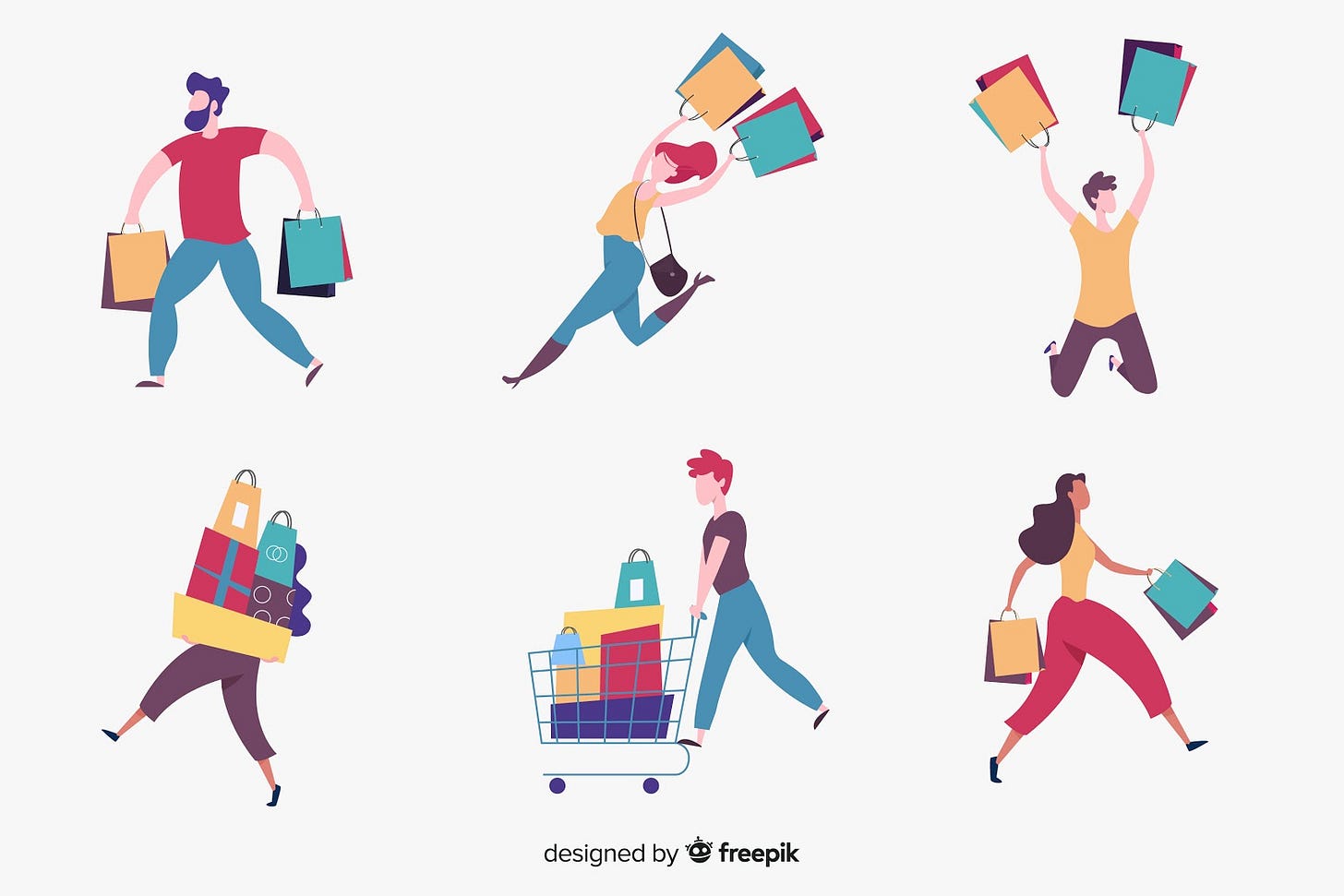Hello all,
It’s that time of the year when we hoard things in the name of Thanksgiving, Great Indian Festival and what not! Let me not play the saint here and concede that being a proud (read guilty) bibliophile, I hoarded half a dozen books only in the last week! So how many “impulse buys” have you made in the recent months?
I will definitely read these books in the near future, but that’s not the point. My “act of buying” was not rational. Not only did I exceed my monthly budget for buying books, but I did not take into account the other essential items I needed to buy this month. As a result of this reckless buying, I’m now thinking twice about buying the essentials. And all this happened within seconds!

But my point is not about online shopping
It is about Self-regulation.
National Association for the Education of Young Children defines it as follows:
“Self-regulation includes the abilities to control physical, verbal, and mental impulses; to set goals and monitor progress toward these goals; and to focus attention on particular and appropriate task”
“Self-regulation involves taking a pause between a feeling and an action—taking the time to think things through, make a plan, wait patiently. Children often struggle with these behaviours, and adults may as well.” (Reference)
We are often worried that children could better plan their activities, pay more attention to a specific task, be patient and control impulsive behaviour.
As with any other skill, self-regulation needs to be modelled by adults. When adults are unable to control our impulses during day-to-day activities such as shopping or reprimanding a child for impulsive behaviour, how can we expect children to develop these skills?
Benefits of self-regulation in early learning settings & beyond
When children grow up in an environment where adults possess strong self-regulation skills, they are able to better regulate their own emotions and realize all the benefits mentioned below:
Children are able to stay focussed on a task
They tend to avoid problematic behaviour
They are more adept at resolving conflicts
They get better at bouncing back from failure and staying calm under pressure
But of course, this is never easy. Early learning settings are highly unpredictable in nature and are also the most stressful environments for adults. It is even more challenging for educators in early education settings, as they battle with additional challenges such as the volume of learners under their supervision, deadlines, low wages and uncooperative colleagues.
As a result, adults need extra care and support in this regard.
How can adults improve self-regulation skills?
Mindfulness - The founder of Mindfulness-Based Stress Reduction (MBSR), defines mindfulness as
"the awareness that arises from paying attention, on purpose, in the present moment and non-judgmentally."
While there are many obvious strategies to stay mindful, such as focused breathing, writing gratitude notes or maintaining a journal, I’m going to suggest a strategy in the domain that resonates with all adults.
MONEY, MONEY, MONEY!
The strategy helps in managing your finances mindfully (thank me later, as this will be handy during the festive season). It is called..
Kakeibo
It is a “no-technology” budgeting system, and hence emphasizes the importance of physically writing things down as a meditative way to process and observe your spending habits. Let me summarize the key tenets of this budgeting system with the help of some images I found useful:
KAKEIBO’S FOUR QUESTIONS (Click to enlarge)

SPENDING MINDFULLY & REDUCING IMPULSE BUYING (Click to enlarge)

P.L.E.A.S.E

References:
What are your thoughts on self-regulation? Do you have any strategies in place already to improve your self-regulation skills? Why not share them with the community?
It is never too late to share the newsletter with your friends and family! Help me spread the word!




Wonderful read.. a very important point to be taken is, as adults when we are not able to self regulate ourselves its gonna be really tough to train our kids.